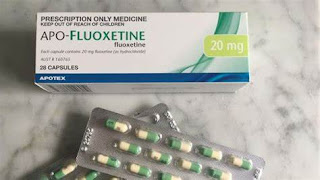Antidepressants linked to rise in superbugs, study finds
-- I've been hearing about this since 2020. I think there is a lot of truth to it. I haven't met a single person on anti-depressants who actually benefited well from it. And this I say applies to mainly those who get prescribed these drugs with no counseling visitations or follow-ups. --
Jianhua Guo, a professor at The University of Queensland Australian Centre for Water and Environmental Biotechnology and the study’s lead author, told Nature magazine that despite being a completely different class of drugs than antibiotics, antidepressants trigger the formation of superbugs that evade pharmaceutical treatments.
Published on January 23 in the journal Proceedings of the National Academy of Sciences, the paper outlines Guo and his colleagues’ experiments on the bacteria Escherichia coli, more commonly known as E. coli. They exposed the bacteria to five common antidepressants: sertraline (Zoloft), duloxetine (Cymbalta), bupropion (Wellbutrin), escitalopram (Lexapro) and agomelatine (Valdoxan).
For two months, Guo and his colleagues tested the bacteria’s susceptibility to 13 different antibiotics representing six different classes of drugs. All of them pushed E. coli to develop antibiotic resistance within that exposure window.
The worst offenders were sertraline and duloxetine, which generated the highest ratio of resistant bacterial cells to normal cells. (Related: Last year, research out of Saudi Arabia found that people who take antidepressants do not find happiness.)
Full article StationGossip






Comments
Post a Comment